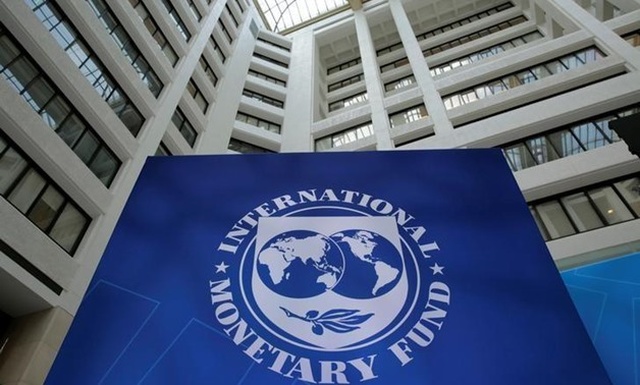IMF Grants $226m Loan To Cameroon To Meet Balance Of Payment Obligations

The Board of Directors of the International Monetary Fund (IMF) on Monday granted a loan of 226 million dollars (135.56 billion FCFA) to Cameroon under its Rapid Credit Facility programme. The money is intended to help Cameroon in responding to its urgent balance of payment needs occasioned by the COVID-19 pandemic.
Speaking after the decision, Mitsuhiro Furusawa, Assistant Director-General of IMF, said that “Cameroon is confronted by serious challenges linked to the double pandemic of COVID-19 and shocks to its terms of payment.
“The feeble world demand, the drop in the prices of raw materials and the national confinement measures weigh on its perspectives thus occasioning important economic and social effects. The shocks have provoked important budgetary pressure and an urgent need for balance of payments.”
The IMF suggested that the Cameroonian authorities should take several measures to contain the propagation of the coronavirus, augment expenditure on health and social protection as well as support businesses and households affected by the virus.
The international financial institution noted, however, that “…because of an important deterioration in the country’s macroeconomic perspectives and a weakening of its budgetary situation resulting in a fall in revenue associated to direct expenditure on health and social amenities, urgent needs of external budgetary financing have come up.”
To this end, IMF support would contribute towards meeting up with the immediate external needs of Cameroon and provide the necessary budgetary oxygen to expenditure on the health essentials linked to COVID-19.
This support would also contribute towards channelling extra assistance from donors.
The IMF’s Rapid Credit Facility enables countries with low income faced with immediate balance of payment problems to obtain credit repayable within a period of 10 years.
Meanwhile, the Inter-Patronal Grouping of Cameroon, popularly known by its French acronym, GICAM, has expressed dissatisfaction with the recent COVID-19 palliative measures taken by the Cameroonian government and said it did not include any custom duty exemptions.
In a communiqué issued on Monday after a meeting of the GICAM Executive Council chaired by its President, Celestin Tawamba, the business patrons called on the government to take additional measures that would really positively impact on the business environment that had continued to deteriorate because of the COVID-19 pandemic.
The GICAM Executive Council however lauded some of the measures taken by the government such as the reimbursement of value added tax but frowned at government’s reluctance in paying business people for goods and services rendered as well as weighing in on banking institutions to be more forthcoming towards the business community.
“The absence of structural measures aimed not only at supporting the finances of enterprises, all of which are severely affected, but also at relaunching the activities of enterprises and the economy remain, for GICAM, a subject of big preoccupation,” the communiqué noted.
Since government announced some palliative measures on April 30 to cushion the effects of the COVID-19 pandemic, there is hardly a positive opinion from the economic community outside the hotel and beer outfits, concerning the measures.
The majority opinion is that the measures taken by government were only as a result of the IMF initially rejecting its application for the Rapid Credit Facility on grounds that it did not include any measures to cushion the effects of the coronavirus pandemic.
The lifting of the restriction on drinking places from operating after 6p.m. has particularly come under serious criticism from many Cameroonians who think the measure would only help in further propagating the coronavirus.
“How cautious can people be in an alcohol consumption environment, especially when they get drunk?
“Already most Cameroonians perceive the lifting of the ban on drinking places as an indication that the coronavirus fear is over. Less than 30 per cent of Cameroonians now wear face masks since the ban was lifted.
“Visiting drinking parlours, one could see people celebrating and singing ‘coronavirus, whiteman’s badluck is gone, welcome to our normal way of life’.
“What effect do you think such an attitude would have on solving the COVID-19 pandemic problem.” asked Monkam Ebenezar, a militant of the leading opposition party, the Cameroon Renaissance Movement.
Support Our Journalism
There are millions of ordinary people affected by conflict in Africa whose stories are missing in the mainstream media. HumAngle is determined to tell those challenging and under-reported stories, hoping that the people impacted by these conflicts will find the safety and security they deserve.
To ensure that we continue to provide public service coverage, we have a small favour to ask you. We want you to be part of our journalistic endeavour by contributing a token to us.
Your donation will further promote a robust, free, and independent media.
Donate HereStay Closer To The Stories That Matter




